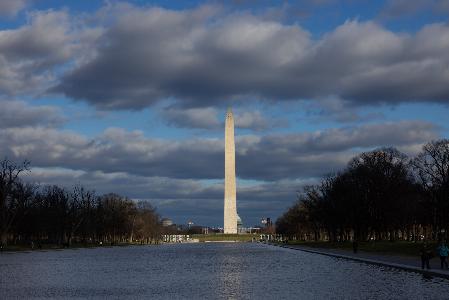Thanks to a new collaboration with the U.S. Air Force, DC’s Howard University is making a big move into defense tech.
Howard just inked a five-year, $90 million contract with the Department of Defense (DoD) to establish the agency’s 15th University Affiliated Research Center. Howard will be the first historically Black college or university (HBCU) to lead one of these research centers, the latest of which is the first to be entirely funded by the Air Force. Through the contract, which is Howard’s first, the university will be awarded $18 million annually.
Danda Rawat, a professor of computer science and director of Howard’s Data Science and Cybersecurity Center, was selected as the center’s executive director and principal contract investigator. He told Technical.ly that Howard put forth a competitive proposal for the contract, alongside consortium institutions Jackson State University, Hampton University, Tuskegee University, Bowie State University, Delaware State University, Florida Memorial University, Norfolk State University and Tougaloo College.
According to Rawat, the center will focus on building better frontline technology.
“Our goal is to design and develop efficient, affordable, trustworthy mechanisms for tactical autonomy, where human and machine will jointly learn easier and form a team for effective execution,” Rawat said.
As war technology progresses, Rawat predicts future conflicts will be multi-domain, which includes air, space, sea, land and cyber. With this in mind, he said that an effective multi-domain battle will require automated systems that can work together to make informed decisions. These mechanisms need to be trustworthy, reliable and affordable, he added.
These components comprise the center’s main foci, with Rawat describing the first steps as establishing a state-of-the-art research facility and hiring to staff it. While he was unsure just how many students and staff would be working in the center, given the volume of consortium schools participating, he expects a large number. Alongside research, the center will also add STEM programming for K-12 students through in-school demonstrations in AI, machine learning, tactical autonomy and machine learning.
This move may also open opportunities for additional work with the federal government, he said.
“We’ll start with this one and the sky is the limit for us,” Rawat said. “So we plan to grow, and we will grow in a positive way.”
Rawat outlined three pillars undergirding the center’s work: trustworthy solutions for autonomous systems, collaboration between systems and joint human/machine teaming for collective learning and decision-making. Applications of fundamental research, he noted, range from as soon as today to as far down the road as five years; regardless, the plan is to conduct applied research and eventually deploy it to devices.
Rawat added that this contract means more resources for students and faculty — and more potential for students to undertake successful tech careers in the DoD and beyond.
“This will provide us with some resources. Now, we will be able to recruit students, mentor students, retain them, supervise them and graduate them,” Rawat said. “And then, hopefully, they will be able to lead the country in the future.”
Join the conversation!
Find news, events, jobs and people who share your interests on Technical.ly's open community Slack

DC daily roundup: Tyto Athene's cross-DMV deal; Spirit owner sells to Accenture; meet 2GI's new cohort

DC daily roundup: $10M to streamline govt. contracting; life sciences might dethrone software; Acadia's new $50M

DC daily roundup: the DMV's VC cooldown, SmartSigns for safer driving; Rep. Schiff's AI copyright bill


